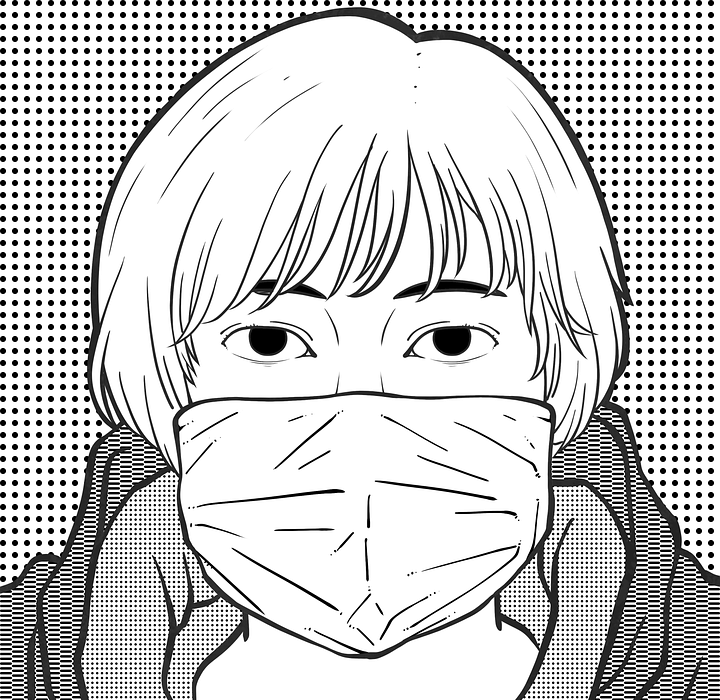As a senior article editor, I've spent years sifting through countless articles about pets, and one question that always pops up is "Can dogs catch colds?" It's a question that's plagued dog owners for generations, and honestly, I've been there myself. Seeing my furry friend sniffling and sneezing is never a pleasant experience, and it's always a bit of a worry. So, let's dive into the fascinating world of canine colds, exploring the symptoms, potential treatments, and ways to prevent those dreaded sniffles.
Part 1: The Great Canine Cold Debate

The Myth of the Dog Cold
First things first, let's get something straight: dogs don't actually "catch" colds in the way humans do. You see, colds in humans are caused by viruses, specifically rhinoviruses. These viruses target specific cells in our respiratory system, causing the familiar symptoms of a cold. While dogs can get sick from viruses, they don't get the same types that cause human colds. So, that runny nose and hacking cough you see in your dog? It's probably something else entirely.
But don't think for a second that your dog is immune to feeling under the weather. They can, and do, get sick from a variety of other factors, and these often mimic human cold symptoms. This is where things get a bit confusing, and it's why the "dog cold" myth persists.
Kennel Cough - The Common Culprit
One common culprit for those "cold" symptoms in dogs is a highly contagious respiratory infection known as kennel cough. This is a real canine infection, not just a human cold, and it's caused by a combination of bacteria and viruses, primarily Bordetella bronchiseptica and canine adenovirus 2. It spreads like wildfire in environments where dogs are in close contact, like kennels, dog parks, and even your own home if you have multiple dogs.
Think of it like a mini-epidemic, but for dogs. The good news is, kennel cough is usually mild and most dogs recover on their own within a few weeks. However, it can be more serious in puppies, senior dogs, and dogs with compromised immune systems. It can even lead to pneumonia in some cases.
Other Potential Causes
Kennel cough isn't the only villain in this story. There are other factors that can leave your dog feeling miserable and exhibiting cold-like symptoms:
- Infections: Bacterial infections, like pneumonia, can also cause coughing, sneezing, and a runny nose. Other bacteria, like Streptococcus and Pasteurella, can also contribute to respiratory problems.
- Allergies: Just like humans, dogs can suffer from allergies to things like pollen, dust, and mold. These allergies can trigger sneezing, coughing, and itchy eyes. Even some foods can trigger allergic reactions in dogs, causing respiratory symptoms.
- Irritants: Irritants like smoke, dust, and strong cleaning products can also trigger respiratory symptoms in dogs. Their sensitive noses and airways are easily irritated by these pollutants.
- Parasites: Some parasites, like lungworms, can live in your dog's lungs and cause coughing. These parasites can be found in the environment and can be transmitted through infected snails or slugs.
- Heartworms: While primarily affecting the heart, heartworm disease can also cause respiratory issues in dogs. These parasitic worms can cause coughing, difficulty breathing, and even heart failure.
The takeaway? While dogs don't "catch" colds in the human sense, they can experience a range of conditions that mimic cold symptoms. It's important to remember that each dog is an individual and can react differently to these potential causes.
Part 2: Spotting the Signs

Common Symptoms of Canine Respiratory Issues
Now that we've established that dogs don't get colds, we need to know what to look out for when your furry friend isn't feeling their best. Here are some common symptoms that might indicate a respiratory issue:
- Sneezing: A frequent and forceful sneeze is often a sign of irritation in the nasal passages. This could be caused by allergies, irritants, or an infection.
- Coughing: This can range from a dry, hacking cough to a wet, gurgling cough. The type of cough can provide clues about the cause. A dry, hacking cough might indicate kennel cough or an irritant, while a wet cough could be associated with pneumonia or parasites.
- Runny nose: A clear or yellow-colored discharge from the nose can indicate a variety of problems. A clear discharge might be associated with allergies, while a yellow discharge could indicate an infection.
- Lethargy: If your dog is unusually tired and inactive, it could be a sign of illness. They might be sleeping more than usual, lack their usual enthusiasm for walks or playtime, and even seem listless.
- Loss of appetite: A decreased appetite is a common symptom of many illnesses. This is a sign that something is not right and it's always important to take it seriously.
- Fever: While not always present, a fever can be a sign of a serious infection. A dog's normal temperature is around 101°F (38.3°C), so if you notice their temperature is higher, it's a sign they're fighting something.
- Difficulty breathing: Laboured breathing, wheezing, or gasping for air can be a sign of a respiratory emergency. This is a serious symptom and requires immediate veterinary attention.
- Discharge from the eyes: Watery or sticky eyes can be another sign of a respiratory infection, especially if it's accompanied by other symptoms.
It's important to remember that these symptoms can also be caused by other conditions, so it's always best to consult with your veterinarian. They can diagnose the underlying cause and recommend the best course of treatment.
Part 3: Seeking Professional Help

When to See the Vet
Now, I'm not a vet (though I play one on the internet, sometimes!), so I can't give medical advice. But I can tell you when to see a veterinarian. If your dog is exhibiting any of the following, it's time to head to the vet's office:
- Difficulty breathing: This is a serious sign that needs immediate attention. Labored breathing, wheezing, or gasping for air could indicate a blockage in the airway or a serious respiratory infection.
- High fever: A fever is usually a sign of infection and should be checked out. Use a rectal thermometer to take your dog's temperature. A reading of 103°F (39.4°C) or higher is a concern.
- Severe lethargy: If your dog is extremely sluggish and unresponsive, it's a sign something is wrong. This is especially concerning if they're not eating or drinking.
- Loss of appetite: If your dog isn't eating for more than 24 hours, it's a cause for concern. This could indicate a serious illness, especially if accompanied by other symptoms.
- Bloody discharge from the nose: This is a potential sign of a serious problem and needs to be evaluated. It could be a sign of an injury, a foreign object lodged in the nose, or a severe infection.
- Coughing up blood: This is a very serious symptom and requires immediate veterinary care.
- Visible weight loss: This can be a sign of an underlying condition that's affecting your dog's ability to eat and thrive.
Remember, your veterinarian is your best resource for managing your dog's health. They can properly diagnose any issues and provide tailored treatment options.
Part 4: Treating Canine Respiratory Issues
Rest and Rehydration
Just like we humans, dogs need rest when they're not feeling well. Providing a quiet, comfortable place for your dog to rest is crucial. Encourage rest and avoid any strenuous activity. Let them sleep, snuggle, and relax until they feel better.
Dehydration can worsen symptoms, so ensuring your dog stays hydrated is vital. If your dog isn't drinking water on their own, you might need to encourage them with a syringe or water bowl. You can also try offering them broth or ice cubes to entice them to drink.
Medications
Depending on the underlying cause of the respiratory issues, your veterinarian may prescribe medications. These could include:
- Antibiotics: For bacterial infections, antibiotics will be necessary to fight off the infection and promote healing.
- Cough suppressants: These medications can help reduce coughing and provide relief for your dog.
- Anti-inflammatory drugs: For allergies, anti-inflammatory drugs can help reduce swelling and inflammation in the airways, making it easier for your dog to breathe.
- Antiparasitics: If parasites are the culprit, antiparasitic medications will be needed to eliminate them.
- Bronchodilators: These medications can open up the airways and make breathing easier, especially for dogs with asthma or other respiratory conditions.
- Oxygen therapy: In severe cases, your dog might require oxygen therapy to help them breathe properly.
Remember, never give your dog human medication without consulting your vet. Some medications are toxic to dogs and can cause serious health problems.
Home Remedies
While home remedies aren't a substitute for veterinary care, they can provide some relief for minor symptoms.
- Humidifier: A cool-mist humidifier can help soothe dry, irritated nasal passages. The added moisture in the air can help loosen mucus and make breathing easier.
- Warm compresses: Applying a warm compress to your dog's chest can help loosen mucus. Use a warm, damp towel or a heating pad set on low.
- Steam: You can try a steam inhalation by adding a few drops of essential oil (like eucalyptus or peppermint) to a bowl of hot water. Let your dog sit near the bowl, but keep them a safe distance from the steam. This can help loosen mucus and open up the airways.
Remember, these are just suggestions, and it's always important to consult your vet before trying any home remedies. Some essential oils can be toxic to dogs, so it's important to use caution and only use oils that are specifically formulated for pets.
Part 5: Preventing Canine Respiratory Issues
Vaccination
Just like humans, dogs can get vaccinated against certain diseases. The kennel cough vaccine is a good example. This vaccine is particularly important for dogs who spend time in close contact with other dogs, like at boarding kennels or dog parks. It's also a good idea for dogs who participate in dog sports or frequent dog events.
The kennel cough vaccine is usually given in combination with other core vaccines, such as the distemper-parvovirus-adenovirus-parainfluenza (DAPP) vaccine.
Maintaining a Clean Environment
Keeping your dog's living environment clean can help prevent respiratory issues. Regularly clean their bedding, food and water bowls, and any surfaces they frequently come into contact with. This includes toys, beds, and areas where they sleep and eat.
Good Hygiene
Practicing good hygiene can help prevent the spread of infections. Wash your hands thoroughly after handling your dog, especially if they have been sneezing or coughing. This is particularly important if you have multiple dogs or if your dog has been around other dogs.
Minimize Exposure to Irritants
Try to minimize your dog's exposure to irritants like smoke, dust, and strong cleaning products. These can trigger respiratory problems. Avoid smoking around your dog, keep your home clean and dust-free, and use pet-friendly cleaning products.
Healthy Diet and Exercise
Maintaining a healthy diet and exercise routine can boost your dog's immune system and make them less susceptible to illness. Feed your dog a balanced, high-quality diet that meets their nutritional needs. Regular exercise helps keep their lungs healthy and strengthens their overall health.
Part 6: My Personal Experience
I remember when my own dog, a fluffy golden retriever named Bailey, started sneezing and coughing. It was a real panic moment! I was convinced he had caught a cold. I rushed him to the vet, only to be told it was probably kennel cough. Thankfully, it was a mild case, and he recovered with rest and some antibiotics. But it definitely scared me, and it solidified the importance of prevention.
I started vaccinating Bailey against kennel cough, making sure his living environment was clean, and avoiding any contact with sick dogs. He hasn't had a respiratory problem since. It's a reminder that even though dogs don't catch colds in the human sense, they can still get sick.
Part 7: Common Misconceptions
Dogs Can't Catch Human Colds
As we've discussed, dogs don't catch human colds because they're caused by different viruses. This is a common misconception, but it's important to remember that dogs have their own set of viruses and bacteria that can make them sick.
Cold Symptoms Are Always Serious
While some symptoms can be worrisome, many respiratory issues in dogs are relatively mild and clear up on their own. It's important to consult your vet to determine the severity of the situation. Some symptoms, like sneezing and a mild cough, might be caused by a minor irritant or allergy, while others, like labored breathing and a fever, might require more serious attention.
Home Remedies Are Always Effective
Home remedies can be helpful for minor symptoms, but they should never replace professional veterinary care. They can provide temporary relief, but they won't address the underlying cause.
Antibiotics Will Cure Any Respiratory Issue
Antibiotics are only effective against bacterial infections. They won't work for viral infections or other conditions that might be causing respiratory symptoms. It's crucial to have your dog's respiratory issues diagnosed by a veterinarian so you can receive the appropriate treatment.
Dogs Can't Get Colds from Humans
While dogs cannot catch human colds, it's important to be mindful of your own health and avoid close contact with your dog if you're feeling unwell. You might unknowingly spread a virus or bacteria to your dog, potentially making them sick.
Part 8: FAQs
1. What if my dog has been exposed to kennel cough?
If your dog has been in contact with a dog that has kennel cough, it's important to monitor them closely for symptoms. If they start to show signs of illness, consult your vet. They might recommend a booster vaccine or preventative medication to help reduce the risk of infection.
2. Can I give my dog human cough syrup?
Absolutely not. Human medications, including cough syrups, can be toxic to dogs and should never be given to them without veterinary guidance. They can contain ingredients that are harmful or even fatal to dogs.
3. How long is kennel cough contagious?
Kennel cough is typically contagious for a few weeks. It's important to keep your dog isolated from other dogs during this time to prevent the spread of the infection. This includes avoiding dog parks, doggy daycare, and other places where dogs congregate.
4. Can my dog spread kennel cough to humans?
While kennel cough is primarily a canine disease, it's possible for humans to contract the bacteria that causes it, but it's rare. However, it's always a good idea to practice good hygiene when handling your dog, especially if they're sick.
5. Should I be worried if my dog is coughing?
A cough can be a sign of a variety of things, some more serious than others. It's always best to consult your vet to rule out any underlying issues. Don't ignore a cough, especially if it persists or is accompanied by other symptoms.
Remember, your dog's health is a top priority. Being aware of the potential causes of respiratory issues, recognizing the symptoms, and seeking professional help when needed can go a long way in keeping your furry friend happy and healthy.
Everyone is watching
-

Can Dogs Eat Bananas? A Guide to Safe Treats
DOGS & PUPPIESThis comprehensive guide will delve into the world of canine nutrition, focusing on the popular question: can ...
-

Can Dogs Eat Oranges? (Is It Safe or Toxic?)
DOGS & PUPPIESThis article delves into the question of whether dogs can safely consume oranges. We'll explore the nutrition...
-

Can Dogs Eat Grapes? The Shocking Truth About This Fruit
DOGS & PUPPIESThis article delves into the controversial topic of grapes and dogs, exploring the potential dangers associate...
-

Why Do Dogs Eat Poop? Understanding Coprophagia in Dogs
DOGS & PUPPIESThis article delves into the perplexing phenomenon of coprophagia, the act of eating faeces, in dogs. We explo...
-

Can Dogs Eat Shrimp? A Guide to Safety and Risks
DOGS & PUPPIESThis comprehensive guide dives into the world of shrimp and dogs, exploring the potential benefits and risks a...
